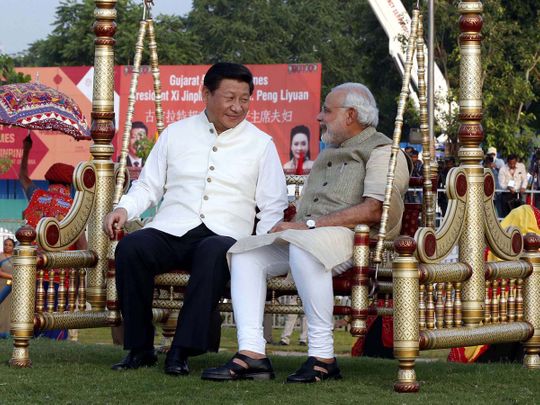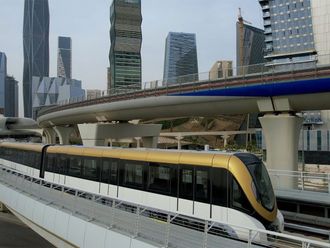
Officially India is still in denial about our massive national security crisis. If you consider the seven years that Modi has been in power in step with his national security czar Ajit Doval, promoted this time around to Cabinet rank, you begin to see a pattern emerge.
I know Doval (health and hygiene disclaimer). I would not say well because I have covered the national security beat for the special investigative bureau in the Indian Express and Hindustan Times.
See also
- Photos: Year on, India's lockdowns ruin Kashmir's economy
- Photos: Landslides after heavy rainfall in Kerala's Idukki district in India
- Pictures: Dubai-Kerala Air India Express flight crashes, splits into two
- Day after: Aftermath of Dubai-Kerala Air India Express flight crash in Kozhikode
- Over 1 million cases: India joins grim COVID-19 club
In the first term it was Modi and Doval circumnavigating the globe in a blaze of lavish publicity to get India a Nuclear Suppliers Group (NSG) waiver. It did not happen. Dr Manmohan Singh had earlier in his term managed to get it.
Indian papers adoringly reported how Doval scored an ace when he dashed and managed to secure some of Modi’s papers as they flew in the rose garden breeze in the White House. This happened in June 2017.
When even paper retrieval becomes a security scoop you have a problem. Consider the “historic Nagaland accord” announced with much fanfare by Modi and Doval in the prime minister’s residence in Modi’s first term. India still does not have any idea of the agreement made with the Nagaland insurgent groups.
Who can forget the indelible images of Modi’s personalised “swing diplomacy” as he and Chinese premier Xi Jinping gave great photo opportunities by sitting on a traditional “jhoola” in the Sabarmati river front in Ahmedabad during the Chinese premier’s state visit in March 2014.
How that has unravelled with Chinese aggression at India’s borders in which we lost 20 soldiers, including a Major, in a face-off in the Galwan valley in June this year. The border face-off continues even as Modi appears to be in denial about it. At an all-party meeting Modi said neither China had intruded nor had India. The Ministry of Defence put out a memo this week about the exact contours of the intrusion and hours later it was deleted.
The Galwan valley face-off was predated with another protracted showdown in Doklam. The limitations of Modi’s emphasis on his personalised outreach with global leaders with the mandatory Modi bear hug now show in stark relief. Modi, perhaps, because he was denied a visa by the US for his alleged role in the 2002 Gujarat riots when he was chief minister, has made a record number of foreign visits (as of August 20, Modi has made 59 international visits). The coronavirus pandemic has put a halt to foreign travel.
What India got from these visits is debatable while it certainly added to Modi’s vision of himself as a global statesman. India got extremely muted support from even the US post the Galwan valley stand-off.
Read more from Swati Chaturvedi
- Ram temple: Narendra Modi now shines as the brightest star in the saffron sky
- Sushant Singh Rajput death: A political circus plays out for a fistful of votes in the Bihar elections
- India’s National Education Policy: Anti-English is anti-poor as it robs them of a future
- Another virus plagues India: Modi’s economic advisers are cheerleaders not managers
Modi’s repeal of Jammu and Kashmir’s special status by reading down Article 370 and reducing the state to two Union territories on August 5 last year has only created unrest in the neighbourhood. Pakistan and China have protested angrily. Even Nepal, once considered an all-weather friend of India, is upset to the extent that their new map shows parts of India as Nepal. This follows an ill-judged blockade of the landlocked country by India in 2015 in Modi’s first term. Things just went from bad to worse post that.
Modi’s domestic policies such as the Citizenship Amendment Act (CAA) and the proposed National Register of Citizens (NRC) have upset erstwhile friend Bangladesh, which protested vociferously against Home Minister Amit Shah calling refugees “termites”.
Modi’s out-size ambitions of projecting himself as the “second Nehru” on the world stage has been a disaster for which India is paying the price.
Modi is armed with his second mandate no Indian prime minister has had: the mandate to change adversely India’s boundaries. The Modi government has to get out of denial and ensure all Indian territory is vacated. Deleting documents won’t quite cut it.









